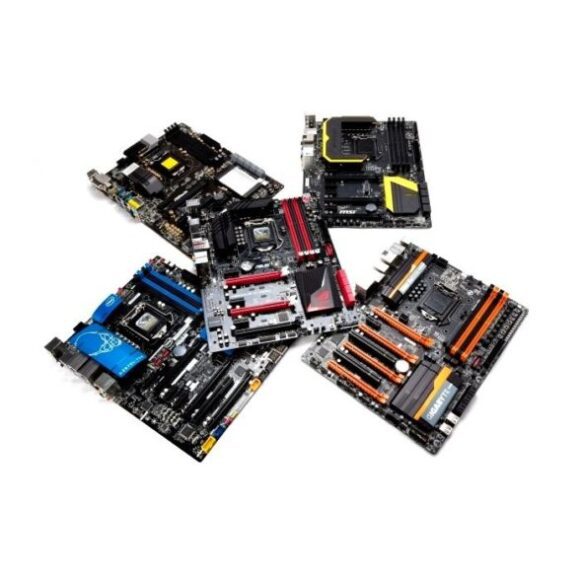In today’s competitive market landscape, eCommerce businesses are continually seeking innovative strategies to attract new customers and retain existing ones. One of the most intriguing developments is the integration of gaming platform services into eCommerce strategies. This approach not only enhances customer engagement but also boosts brand loyalty, tapping into the lucrative and expansive world of gaming.
The Gaming Industry and eCommerce: A Profitable Alliance
The global gaming market is expected to reach $256.97 billion by 2025, growing at a compound annual growth rate (CAGR) of 9.17% from 2020 to 2025. This burgeoning industry presents a vast ocean of opportunities for customer engagement through gamification and other gaming-related services. By leveraging these platforms, eCommerce businesses can create immersive experiences that attract a broader audience.
Enhanced Customer Engagement through Gamification
Gamification involves incorporating game-like elements into non-game contexts, a strategy that many eCommerce businesses are adopting to enhance user engagement and retention. Elements such as point scoring, competitions, and rule-based interactions encourage users to engage more deeply with the brand, transforming routine transactions into exciting experiences. For example, Nike’s NikeFuel Challenge rewards users with points and badges for fitness activities, effectively combining product use with engaging, game-like incentives.
Exclusive Content and Rewards
Gaming platforms enable brands to offer exclusive content and rewards, creating a sense of community and exclusivity among customers. For instance, exclusive in-game items for particular online purchases or rewards for achieving certain milestones within a game can significantly enhance customer loyalty and repeat business.
Leveraging Live Streaming and eSports
The rise of live streaming and eSports provides eCommerce brands with platforms to reach millions of viewers globally. Brands can sponsor tournaments or create branded in-game events to increase visibility. For example, luxury fashion brands like Louis Vuitton have partnered with video game leagues to design in-game items and real-world fashion products, merging high fashion with high gaming.
The synergistic relationship between eCommerce and gaming continues to evolve, offering innovative avenues for growth and customer engagement. As businesses dive deeper into this integration, understanding additional facets of how gaming can drive eCommerce success is crucial. This includes exploring new technologies, the impact of mobile gaming, community building, and the utilization of data analytics.
Expanding Reach through Mobile Gaming
Mobile gaming represents a vast and diverse user base, with over 2.2 billion mobile gamers worldwide as of 2021. The ubiquity of smartphones has democratized access to games, making it a prime channel for eCommerce brands to engage with consumers. Mobile games can incorporate advertisements or in-app purchases linked to eCommerce platforms, seamlessly integrating shopping experiences into the gaming interface. For instance, fashion retailers have launched interactive mobile games that allow players to design outfits, which they can then purchase directly through the game.
Building Communities and Social Commerce
Gaming platforms inherently foster strong communities, characterized by interactions and shared experiences among players. eCommerce businesses can tap into these communities to promote products and encourage peer-to-peer sales through social commerce. Community-driven sales are powerful, as recommendations from fellow gamers can influence buying decisions more effectively than traditional advertising. Brands can also engage with these communities by hosting virtual events or forums within games, enhancing the communal feel and loyalty.
Leveraging Advanced Technologies
Emerging technologies such as Virtual Reality (VR) and Augmented Reality (AR) are taking the gaming-eCommerce integration to the next level. VR and AR can create deeply immersive shopping experiences that mimic the interactivity of games. For example, an AR-powered shopping app can allow users to try on clothes virtually before purchasing, providing an interactive experience that boosts consumer satisfaction and reduces return rates. Similarly, VR platforms can simulate store environments where users can explore products in a highly engaging, three-dimensional space.
Data Analytics and Personalization
Gaming platforms collect vast amounts of data on user behavior, preferences, and engagement metrics. eCommerce businesses can analyze this data to tailor personalized shopping experiences that mirror the personalized nature of gaming. Personalized marketing messages, product recommendations, and special offers based on gaming habits can significantly increase conversion rates. Furthermore, this data can help businesses understand which game elements are most engaging, allowing them to refine their gamification strategies to better meet customer expectations.
Ethical Considerations and Consumer Privacy
As eCommerce businesses harness gaming platforms to collect and analyze consumer data, they must also navigate the ethical implications and ensure robust privacy protections. Transparency about data use, securing consent, and providing opt-out options are essential to maintaining consumer trust and loyalty. Businesses must adhere to privacy regulations such as the General Data Protection Regulation (GDPR) in Europe and similar laws worldwide to protect consumer data and avoid potential legal issues.
Real-World Examples and Success Stories
- Sephora’s Beauty Insider: This loyalty program uses a gamified point system where customers earn points for each purchase, which can be redeemed for rewards. This strategy has not only increased purchases but also enhanced customer engagement by providing a game-like, rewarding experience for shopping.
- Amazon and Twitch Prime: Amazon leverages its gaming platform Twitch to offer Twitch Prime, which includes perks like ad-free viewing and free in-game content. This integration helps Amazon drive Prime subscriptions and, concurrently, customer loyalty.
The Role of Game Server Hosting in Enhancing eCommerce Strategies
Providing a seamless gaming experience is crucial for the success of gamified eCommerce strategies. Game server hosting, such as the services provided by P99Soft, ensures high-performance, scalability, and 24/7 customer support. These technical foundations are essential for maintaining the uninterrupted, engaging experiences that gaming customers expect.
P99Soft offers specialized game server hosting solutions that can support the complex needs of eCommerce businesses looking to integrate gaming into their customer acquisition and retention strategies. Their robust infrastructure and expert support can help ensure that these gaming initiatives are successful and sustainable.
FAQs About eCommerce and Gaming Platform Services
1. How can gamification increase customer retention for eCommerce businesses? Gamification enhances user engagement by making shopping experiences more interactive and enjoyable, which can lead to increased customer retention rates.
2. What are the key benefits of integrating gaming platforms with eCommerce? The key benefits include enhanced customer engagement, increased brand visibility through gaming communities, and the opportunity to offer exclusive rewards that incentivize repeat purchases.
3. Are there any risks associated with integrating gaming into eCommerce? Potential risks include the high cost of game development and the need for continuous content updates to keep the platform engaging. Additionally, not all customer segments may respond positively to gamification strategies.
4. How can eCommerce businesses measure the success of their gaming strategies? Success can be measured through metrics such as increased user engagement rates, higher transaction volumes, and improved retention rates.
5. Can small eCommerce businesses also benefit from gaming strategies? Yes, small businesses can benefit by using scaled-down gamification techniques, such as simple point systems or mobile app integrations, which can be more cost-effective and still increase customer engagement.
Conclusion
The integration of gaming platform services into eCommerce strategies is not just a trend but a transformative approach that leverages the massive engagement and loyalty seen in the gaming world. By creating engaging, interactive, and rewarding experiences, eCommerce businesses can significantly enhance customer acquisition and retention. Companies like P99Soft are crucial in providing the technological backbone necessary for these endeavors.
With the continuous evolution of both the eCommerce and gaming industries, what will be the next big milestone in their convergence?
Also know Innovative Software Testing




